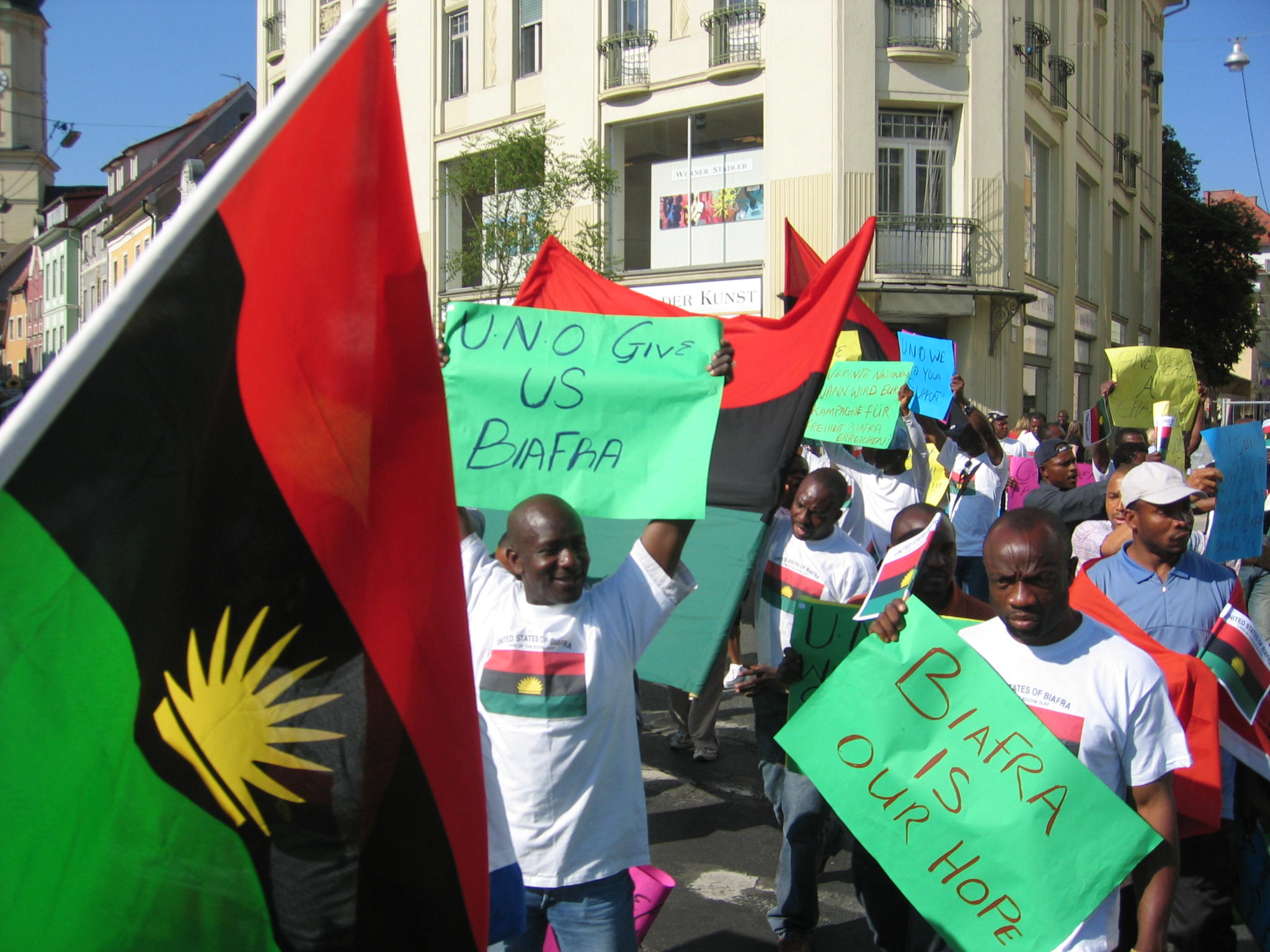ONE: A radio station proclaiming itself to be representing the interests of the Republic of Biafra has started airing broadcasts. Radio Biafra first hit airwaves in the course of the Nigerian civil war. The re-emergence of Radio Biafra has been met with shock, excitement and curiosity. I am personally curious about this station that broadcasts from London and is slated to broadcast twice a week. Radio Biafra’s website has as its stated objective the provision of “a channel for unbiased information and news to all ethnic nationalities living under Nigerian oppression” and “the restoration of the ancient value systems that successfully sustained the peaceful co-existence of these societies before the disaster called Nigeria was forced on these indigenous nationalities”. I can especially understand the latter.
TWO: Yet another examination on the current situation in Nigeria, claiming to be from a position of truth about Nigeria as opposed to “falsified and sponsored reporting”. The essay comes from the viewpoint of the South-South and the South-East political zones campaigning for a separation from Nigeria and confronts John Campbell’s essay on the Easter bombings, as well as the reportage of foreign commentators.
THREE: Nigeria is currently facing the consequences of a “storm”. In an early examination of Goodluck Jonathan’s government, it is revealed that though last year, high growth, economic reform and rising incomes were predicted for Nigeria, Nigeria’s growth forecast for 2012 has been reduced to 6.8 per cent. This will be the lowest level for three years. Nigeria’s inflation is also predicted to rise by nearly 3 per cent due to the partial removal of the fuel subsidy.
FOUR: In Potiskum, Yobe State, 34 people were killed following an attack in a cattle market. Gunmen burned the market to the ground with explosives and shot indiscriminately with assault rifles on Wednesday night. The attack is said to be a retaliation due to the traders fighting off a gang when they tried to rob the market. A member of this gang was caught by traders and lynched the mob who placed a tyre over his head and burnt him to death. At least 29 people are being treated for injuries.
FIVE: In the early morning of Tuesday, Nigerian troops raided a suspected Boko Haram hideout in Bubbugaje, in the outskirts of Kano State. There was a shoot out, the Nigerian army apparently killed one member of Boko Haram and discovered arms and ammunitions such as improvised explosive devices, one AK-47 rifles and knives. Other seized items include two laptops, a motorcycle and some fertilizers. Another Boko Haram member escaped while two women, including a nursing mother and one married to a member of Boko Haram, and a three-year-old girl were arrested by the soldiers.
The building was taken over by security agents and cordoned off with armoured carriers and a bulldozers.
SIX: Following up from a previous Weekly Ten, more on the House of Representatives probe into fuel subsidy payments and the revelation of $6.8 billion missing due to irregular payments and forged importation documents. Will Goodluck Jonathan be serious about dealing with corruption when the report on this missing money is presented to him?
SEVEN: The Nigerian Communications Commission (NCC) has threatened to impose sanctions on MTN Nigeria due to alleged poor services to subscribers. People in Lagos and its surroundings have been facing bad services on MTN’s network, because of this the NCC ordered MTN to provide a report on the situation or face sanctions on failing to respond.
EIGHT: A group of Muslim and Christian women gathered in front of the Kaduna State secretariat of the Nigeria Union of Journalists (NUJ) to pray for Nigeria. The prayer session was organised by the Nigeria Association of Women Journalists (NAWOJ) and was labelled, “Prayer session for peace, unity and stability in Kaduna and the nation”.
NINE: To bring marriage and peace, the Islamic sharia police in Kano have come up with a programme to match widows and divorced women with available men. Apparently, officials hope this will reduce the unrest in the region, as well as social problems. The programme hopes to provide children with proper parental guidance and care in order to prevent them from been influenced by extremist tendencies.
TEN: A collection of pulp fiction published in Onitsha in the 1960s and 70s have been digitized and made available online. Lovers of reading and pulp fiction should enjoy this.
